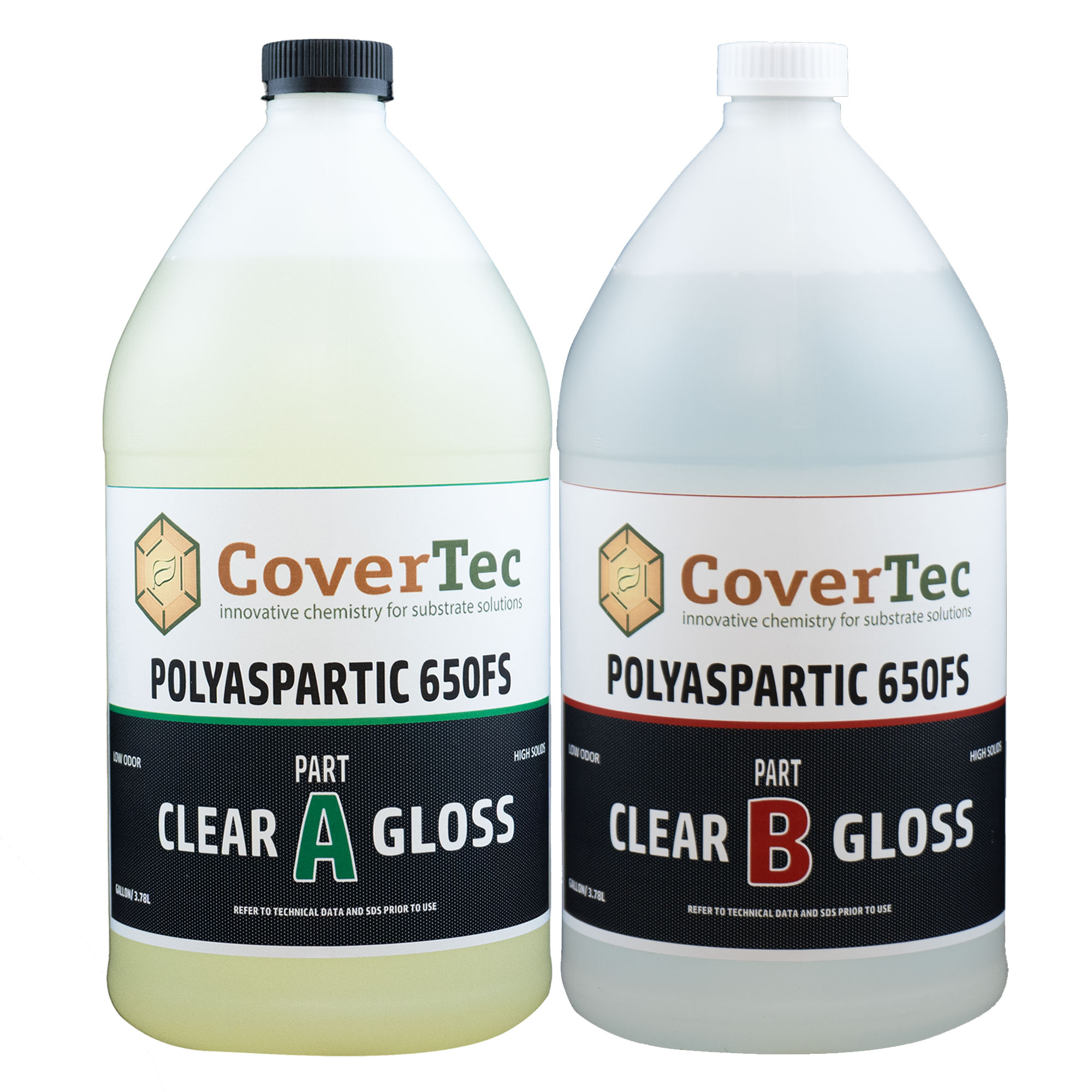
FREE SHIPPING OVER $20
Free Shipping Inside The USA

MONEY BACK GUARANTEE
30-Day Money Back Guarantee.

MADE IN THE USA
100% American Made Products.



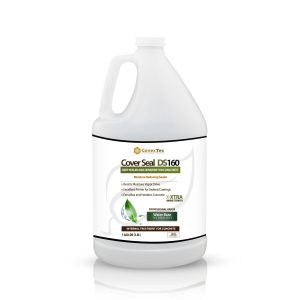

Deep sealer and densifier for concrete – CoverSeal DS160
$14.00 – $153.00
- Location : Interior/Exterior
- Task : Deep Seal/ Harden/Densify Concrete
- Application : Pump Spray/ Roller
- Base : Water Based
- Coverage : 200- 300 sq.ft/gal
- Finish : Clear Liquid
- Secure Checkout
- Location : Interior/Exterior
- Task : Deep Seal/ Harden/Densify Concrete
- Application : Pump Spray/ Roller
- Base : Water Based
- Coverage : 200- 300 sq.ft/gal
- Finish : Clear Liquid
Delivery Time: Typically 3 to 5 business days
Frequently Bought Together
What customers are saying
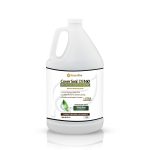
Deep sealer and densifier for concrete – CoverSeal DS160
$14.00 – $153.00
In stock
- Description
- Technical
- FAQs
- Reviews
Description
Deep Sealer and Densifier for Concrete - CoverSeal DS160
CoverSeal DS160 is a unique alkali-activated primer and densifier for concrete that reacts with the calcium hydroxide
deep inside concrete to form a dense silicate complex that prevents the passage of water vapor, moisture and
efflorescence through floor slabs and walls.
Features:
- Works internally to seal the concrete
- Low-viscosity solution for deeper seal
- Reduces Moisture Vapor Emission (MVE)
- Holds back efflorescence and salt migration
- Works as a primer for sealers and coatings
- Boosts repellency of penetrating sealers
- Retards pitting, dusting, and rutting.
- Cures new concrete uniformly and resists hairline cracking and spot drying.
- Densifies and hardens all concrete and masonry
- Increased resistance to freeze-thaw and salt attack.
- Does not alter appearance or texture of the treated surface.
- Can be painted over, and will accept concrete topping or adhesives for floor tile, etc.
Typical Uses:
- Water and Vapor Barrier
- Freeze/Thaw Protection
- Excellent Primer for Stain Resistant Sealers
- Block efflorescence/ salt migration
- Deep Seal and Densify weak or porous concrete
- Above, below or on grade as a slab hardener, dust proofer
- Seal Stucco before painting
- Concrete treatment before coating—rubberized paint, adhesives, polyurea, epoxy, surfaces sealers.
Packaging
1 Gallon (3.8L) bottle and 5 Gallon (19L) Pail of Ready To Use Solution
Coverage:
200-300 ft2 per gallon (4.9 – 7.3 m2 per liter) depending on the porosity of the substrate.
Application
Installation Guidelines
New Concrete
CoverSeal DS160 can be applied to green concrete when the concrete is strong enough to be walked on without leaving a mark, typical 2 to 3 days.
CoverSeal DS160 can be applied to green concrete when the concrete is strong enough to be walked on without leaving a mark, typical 2 to 3 days.
Test Area
Before application to the whole surface, test a small area to verify absorption, application rates, and desired results, especially on dense surfaces.
Before application to the whole surface, test a small area to verify absorption, application rates, and desired results, especially on dense surfaces.
The concrete must be dry prior to treatment.
Stir DS160 thoroughly before use. Substrate and ambient temperature should not be below 40°F or above 95°F during the application or drying period.
Stir DS160 thoroughly before use. Substrate and ambient temperature should not be below 40°F or above 95°F during the application or drying period.
Existing Concrete
The surface must be clean and porous enough to allow penetration into the substrate.
Surfaces should be clean and free of surface laitance, dust, dirt, debris, mildew, oil, grease, previous sealers, curing agents, paint or other surface coatings, and other contaminants. If acid or other cleaning compound is used for cleaning or etching the surface, neutralize the surface completely before the application of DS160.
The surface must be clean and porous enough to allow penetration into the substrate.
Surfaces should be clean and free of surface laitance, dust, dirt, debris, mildew, oil, grease, previous sealers, curing agents, paint or other surface coatings, and other contaminants. If acid or other cleaning compound is used for cleaning or etching the surface, neutralize the surface completely before the application of DS160.
Apply an even layer of product with a low-pressure sprayer, lamb’s wool applicator, roller, or brush.
Work in small, manageable areas to ensure the product is applied uniformly and does not dry out on the surface.
Work in small, manageable areas to ensure the product is applied uniformly and does not dry out on the surface.
Allow DS160 to fully absorb into the surface for 10 minutes without puddles.
Any product not absorbed after 10 minutes should be spread using a soft broom, roller, or lamb’s wool applicator.
Over-application may leave a white residue on the surface. This residue can be cleaned off when dry by scrubbing or by pressure washing.
Applying DS160 to a surface that has low pH content may also lead to the formation of white residue. To reduce this likelihood, it is recommended that the surface is rinsed thoroughly with water 2 hours after final application of sealer.
One or two coat application is typically required.
Very porous or dusty surfaces may require a second application. Localized areas may require a second application.
If the surface is porous and more product can be absorbed, wait 1-2 hours before the second application following the same method described above.
DS160 is recommended for used as a primer for any of CoverTec’s stain resistant sealers to maximize the durability and effectiveness of the stain proofing.
Water Vapor Emission Testing
Before surface coatings, paint, floor covering etc. are applied over the DS160 treated concrete it is important to test that moisture level is within acceptable limits according to floor covering manufacturer’s warranty. Test the concrete to determine the moisture vapor transmission rate (MVER) using the ASTM F1869 anhydrous calcium chloride test.
Vertical Surfaces
On vertical, formed surfaces, apply DS160 as soon as the forms have been stripped and the surface rubbed, (if required). Apply from the bottom up, going over the area twice to ensure saturation. Pay attention to the quantity of material applied by square footage (square meter). You should apply one gallon to every 200 ft2 (1 liter/ 4.9 m2) of wall surface. Do as many light applications as required to result in that application rate.
Limitations
- Do not apply to wet surfaces.
- Do not apply below 40°F or above 95°F (5-35⁰C)
- Allow grout and mortar to fully cure before application This product is not a “ topical sealer” and will not prevent staining. Use CoverShield products if you wish to seal and protect from staining.
- Do Not Dilute Ready-To- Use Product.
- Will not accommodate dynamic movement cracks.
- DS160 is designed to work only on porous natural stone and concreaThe use of high alkaline or acidic cleaners on the treated surface is not recommended and can be damaging.te is not intended for asphalt.
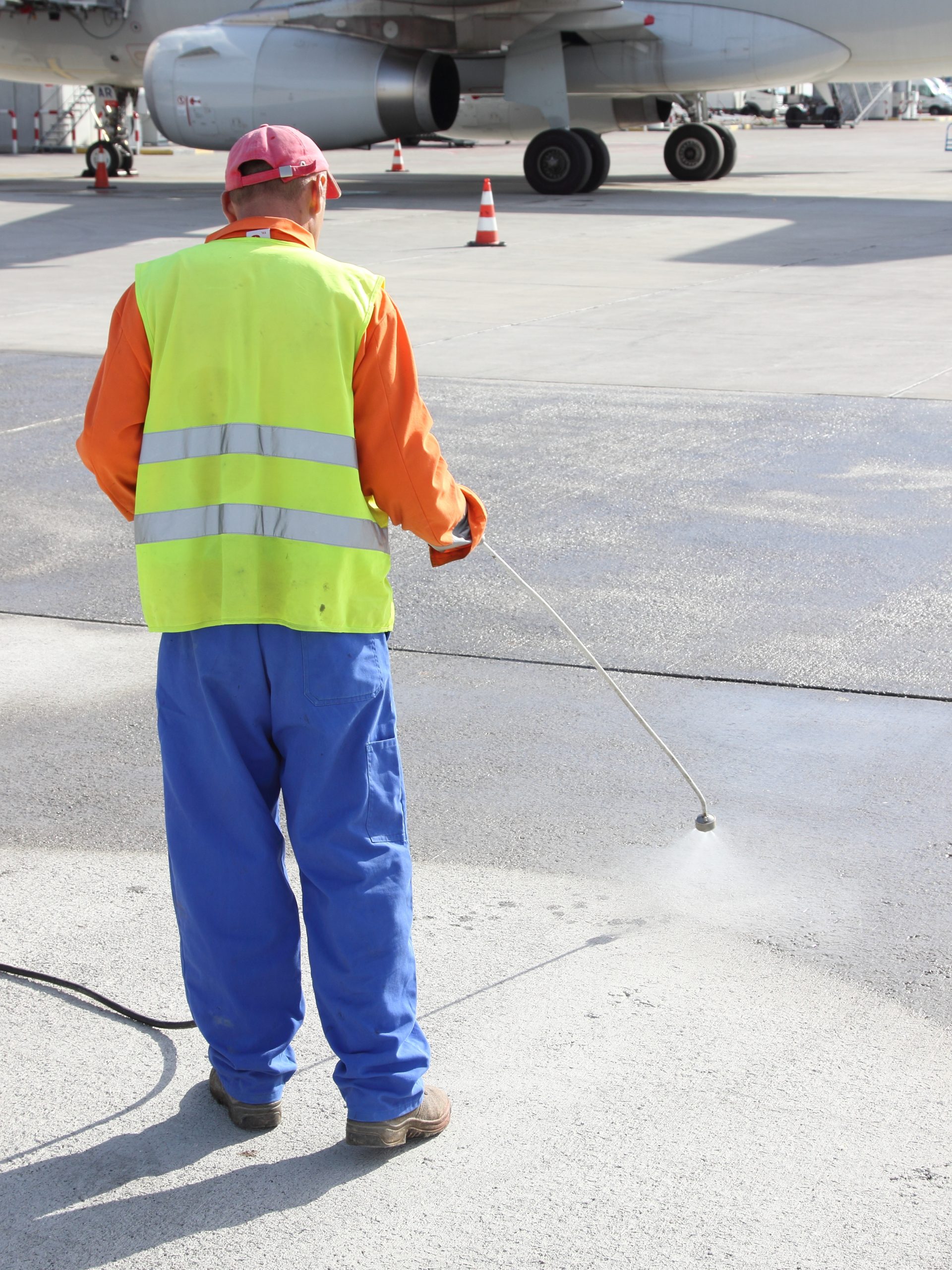
What Is A CoverSeal DS160 Deep Seal and Densifier for Concrete?
CoverSeal DS160 is a unique alkali-activated penetrating sealer that reacts with the calcium hydroxide deep inside concrete to form a dense silicate complex
that prevents the passage of water vapor and moisture through floor slabs and walls.
DS160 is recommended for used as a primer for any of CoverTec’s stain resistant sealers to maximize the durability and effectiveness of the stain proofing.
Allow DS160 to dry a minimum of 2 hours before applying the stain resistant sealer. Compatible sealers include CoverSeal Pen55, PREMIUM and CoverShield U140.
What Are The Do's And Don'ts When Using DS160 Deep Sealer and Densifier for Concrete?
When using DS160 make sure the surface is absorbent or porous. This way, the solution can soak into the substrate.
Any contaminants that are on the surface need to be cleaned off, stripped or ground off.
Recommended cleaners include SurfaceClean or Surface PrepWork.
Recommended Stripper is PowerStrip.
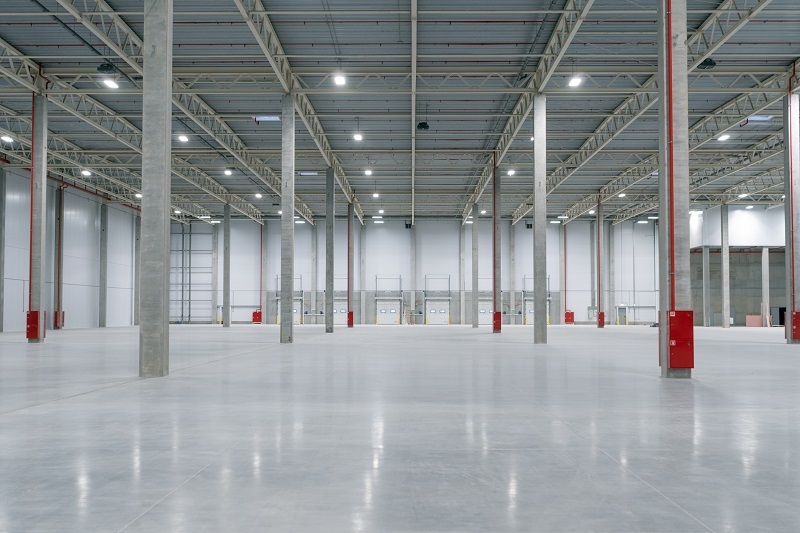
Do not over-apply the product. Typically you should look for between 200-300 ft2 per gallon (4.9 – 7.3 m2 per liter) depending on the porosity of the substrate.
StoneBlock should be fully absorbed into the surface within 10 minutes without puddles.
Using a pump-up sprayer is the best way to apply.
Densifier for Concrete: Enhancing Strength and Durability
Revolutionizing Concrete Protection: Unleashing the Potential of Densifiers for Concrete
Concrete, a vital component in the construction industry, demands unwavering durability to ensure the integrity and appearance of structures. At CoverTec, we are deeply committed to concrete protection, and we are thrilled to introduce a groundbreaking solution that is reshaping the industry: densifiers for concrete. These remarkable products act as primers for concrete sealers and coatings, revolutionizing the way we safeguard and enhance the performance of concrete structures.
Concrete: Beyond Ordinary Composition
When we envision concrete, the image of a plain, gray material often comes to mind. However, the true nature of concrete extends far beyond its appearance. It is a porous substance that requires robust protection against external elements to prevent degradation and maintain its structural strength and visual appeal. In this article, we will delve into the pivotal role that densifiers for concrete play in preserving the longevity and enhancing the resilience of this essential building material.
Concrete Sealers: The Conventional Approach
Traditional methods of concrete protection have relied heavily on sealers. These products create a protective barrier on the surface, repelling water, resisting stains, and shielding against harsh environmental conditions. While sealers offer surface-level protection, they often fall short in penetrating deep into the concrete matrix, leaving vulnerable areas exposed to potential damage. Is there a more comprehensive solution that can address this limitation?
The Game-Changer: Densifiers for Concrete
Imagine a product that not only seals the surface of concrete but also permeates its very core, providing comprehensive protection from within. This is where the true innovation lies: densifiers for concrete.
Unlocking the Potential: Densifiers for Concrete as Powerful Primers
Densifiers for concrete are extraordinary substances that initiate a chemical reaction upon application, resulting in a denser and harder surface. This transformative process reduces porosity and enhances the material’s resistance to wear and tear, preparing it optimally for the subsequent application of sealers or coatings.
The Science Behind Densifiers for Concrete
Let us explore the scientific intricacies of these extraordinary products. Densifiers for concrete contain compounds such as silicate, which undergo a chemical reaction with the free lime or calcium hydroxide present within the concrete. This reaction leads to the formation of calcium silicate hydrate (CSH), an insoluble compound that fills the concrete’s pores, significantly increasing its density and reducing permeability.
Benefits of Opting for Densifiers for Concrete
You may be wondering about the advantages that this revolutionary solution offers. Let us highlight the numerous benefits, which are truly exceptional.
- Enhanced Durability: Densifiers for concrete fortify the material, making it remarkably resistant to wear and tear. This increased durability enables concrete structures to withstand heavy traffic, prolonged use, and the test of time.
- Superior Protection: By reducing porosity, densifiers for concrete significantly minimize the likelihood of staining and discoloration. This results in a surface that is better protected against external elements, enhancing the material’s overall performance.
- Optimal Surface Preparation: Serving as exceptional primers, densifiers for concrete meticulously prepare the surface for the application of sealers or coatings. This ensures maximum adhesion and durability of these subsequent protective layers.
Sealers and Coatings Application after Densification
Once the densifier for concrete has been meticulously applied, the surface is primed for the application of sealers or coatings. The selection of the most suitable sealer or coating depends on specific requirements, including the desired level of protection, appearance, and environmental conditions.
- Regular Cleaning: Implement a routine cleaning regimen to remove dirt, debris, and any potential contaminants from the concrete surface.
- Avoid Harsh Chemicals: Steer clear of using harsh chemicals that may compromise the integrity of the concrete or the applied sealers or coatings. Opt for mild and concrete-friendly cleaning solutions.
- Routine Inspections: Conduct regular inspections to identify any signs of damage or wear. Promptly address any issues to maintain the optimal condition of the concrete.
Densifiers for concrete are exceptional products specifically formulated to penetrate deep into the material, initiating a chemical reaction that leads to a denser, harder, and more durable surface.
Absolutely! Densifiers for concrete serve as outstanding primers, enhancing the adhesion and effectiveness of subsequently applied concrete sealers and coatings.
Densifiers for concrete react with the material, forming insoluble compounds that fill the concrete’s pores. This process significantly increases the material’s density and resilience against wear and tear, ultimately enhancing its durability.
Certainly! By reducing porosity, densifiers for concrete effectively minimize the occurrence of staining and discoloration, leading to an aesthetically enhanced surface.
To ensure the longevity and continued performance of densified and sealed concrete, it is essential to follow a regular cleaning routine, avoid harsh chemicals that may damage the material, and conduct routine inspections to promptly address any issues that may arise.
Common Questions About Densifiers for Concrete and Concrete Sealers
Let us address some common queries regarding densifiers for concrete and concrete sealers.

Conclusion: Embracing the Power of Densifiers for Concrete
n summary, the utilization of densifiers for concrete as primers for sealers and coatings marks a remarkable breakthrough in concrete protection. With enhanced durability, superior protection against wear and tear, and optimal surface preparation, this revolutionary solution promises to elevate the performance and longevity of concrete structures. Embrace the power of densifiers for concrete and unlock the full potential of this essential building material.
Frequently Asked Question
Densification is typically performed when the concrete has cured but is still fresh, usually after the initial set. This timing allows the densifier to effectively penetrate the concrete surface and react with the calcium hydroxide to strengthen the concrete matrix.
What is the best concrete densifier? Several high-quality densifiers are available in the market, offering different formulations to cater to specific project requirements.
Factors such as the desired outcome, concrete type, and environmental conditions should be considered when choosing the best concrete densifier. Consult with CoverTec to determine the best densifier for concrete floors and achieve optimal results.
Is densifier the same as sealer? No, densifiers and sealers are different products with distinct purposes. Densifiers penetrate the concrete surface, reacting with the calcium hydroxide to strengthen the concrete matrix. They primarily focus on enhancing the concrete’s strength, durability, and resistance to abrasion. Sealers, however, create a protective layer on top of the concrete, primarily to prevent moisture penetration, stains, and chemical damage.
How deep does concrete densifier penetrate? The depth of penetration of a densifier depends on several factors, including the type of densifier and the concrete’s porosity. In general, densifiers can penetrate several millimeters into the concrete surface, reacting with the calcium hydroxide to form calcium silicate hydrate, which fills the pores and increases the concrete’s density.
Does densifier darken concrete? The effect of a densifier on the concrete’s appearance can vary. While some densifiers may darken the concrete slightly, others are designed to have minimal or no impact on color. It is important to consider the desired aesthetic outcome when selecting a densifier. Conducting a small test area before full application is recommended to evaluate the effect of the specific densifier on the concrete’s color.
What is the best concrete densifier? Several high-quality densifiers are available in the market, offering different formulations to cater to specific project requirements.
Factors such as the desired outcome, concrete type, and environmental conditions should be considered when choosing the best concrete densifier. Consult with CoverTec to determine the best densifier for concrete floors and achieve optimal results.
Is densifier the same as sealer? No, densifiers and sealers are different products with distinct purposes. Densifiers penetrate the concrete surface, reacting with the calcium hydroxide to strengthen the concrete matrix. They primarily focus on enhancing the concrete’s strength, durability, and resistance to abrasion. Sealers, however, create a protective layer on top of the concrete, primarily to prevent moisture penetration, stains, and chemical damage.
How deep does concrete densifier penetrate? The depth of penetration of a densifier depends on several factors, including the type of densifier and the concrete’s porosity. In general, densifiers can penetrate several millimeters into the concrete surface, reacting with the calcium hydroxide to form calcium silicate hydrate, which fills the pores and increases the concrete’s density.
Does densifier darken concrete? The effect of a densifier on the concrete’s appearance can vary. While some densifiers may darken the concrete slightly, others are designed to have minimal or no impact on color. It is important to consider the desired aesthetic outcome when selecting a densifier. Conducting a small test area before full application is recommended to evaluate the effect of the specific densifier on the concrete’s color.
Although the terms “hardener” and “densifier” are sometimes used interchangeably, they serve different purposes. A concrete hardener densifier is a surface treatment that forms a protective layer on top of the concrete, primarily focusing on enhancing surface hardness and abrasion resistance. On the other hand, a densifier penetrates the concrete, chemically reacting to increase the density, strength, and durability of the concrete from within.
Several high-quality densifiers from CoverTec offer different formulations to cater to specific project requirements. Factors such as the desired outcome, concrete type, and environmental conditions should be considered when choosing the best concrete densifier. Consult with Technical Support to determine the best densifier for concrete floors and achieve optimal results.
No, densifiers and sealers are different products with distinct purposes. Densifiers penetrate the concrete surface, reacting with the calcium hydroxide to strengthen the concrete matrix. They primarily focus on enhancing the concrete’s strength, durability, and resistance to abrasion. Sealers, on the other hand, create a protective layer on top of the concrete, primarily aimed at preventing moisture penetration, stains, and chemical damage.
A densifier’s penetration depth depends on several factors, including the type of densifier and the concrete’s porosity. In general, densifiers can penetrate several millimeters into the concrete surface, reacting with the calcium hydroxide to form calcium silicate hydrate, which fills the pores and increases the concrete’s density.
The effect of a densifier on the concrete’s appearance can vary. While some densifiers may darken the concrete slightly, others are designed to have minimal or no impact on color. It is important to consider the desired aesthetic outcome when selecting a densifier. Conducting a small test area before full application is recommended to evaluate the effect of the specific densifier on the concrete’s color.
Related Products


Sale
